Civic education in South Africa
Lecturer Guides for Colleges for Technical and Vocational Education and Training (TVET)
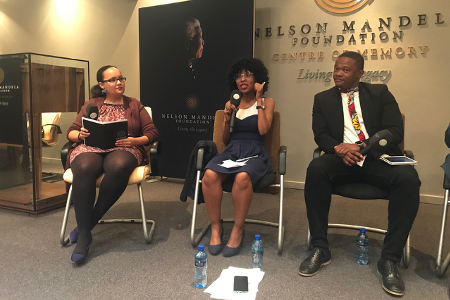
Facilitator and panelists
HSF; HSF
For South Africa, the topic of political education is of great importance. There is hardly any other country in the world where social and economic inequality is greater. If a child is lucky enough to be born into one of the few wealthy families, all doors are open to him in finding work in the industrialized cities of Cape Town, Johannesburg or Durban. However, the majority of young people in South Africa grow up in poor circumstances. They live in townships where violence and crime are part of everyday life and they attend schools with poor education standards. Although, in recent years a black middle class has emerged in South Africa, the dividing line unfortunately continues to run between population groups. It is mainly the black population that suffers from the inequality of opportunities.
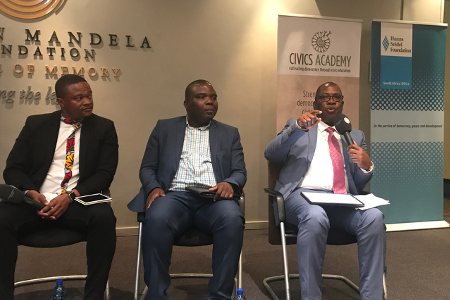
Panelists reflecting
HSF; HSF
The current poor economic situation in South Africa contributes to the fact that young people are increasingly losing confidence in politics and the state. They do not feel able to actively and constructively shape South Africa's future. Dissatisfaction has grown in recent years. The increase in violent protests, for example due to poor municipal services, is worrying. At the same time, the political discourse has become more confrontational and often hostile. Many young adults no longer regard elections as a suitable means of expressing their wishes and needs. There is no other section of the population where there are more non-voters. However, young people in particular have the difficult task of defending and developing the political achievements of Nelson Mandela, said Gauteng Minister of Education Panyaza Lesufi.
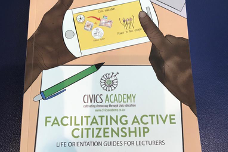
The new Lecturer Guide
HSF; HSF
Therefore, the Hanns Seidel Foundation in South Africa has been working together with the Ministry of Higher Education on a teacher's manual for civic education in colleges for technical and vocational education and training (TVET) for more than a year. After numerous expert discussions and focus groups, the teachers guide "Facilitating Active Citizenship" was presented at the Nelson Mandela Foundation to directors of TVET colleges in the country and more than 100 teachers and decision makers from politics and civil society.
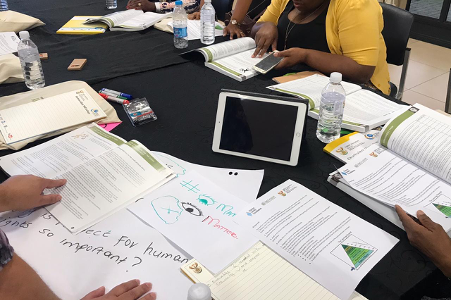
The contents are mainly based on short videos of the Hanns Seidel Foundation on civic education, which were developed in our "Civics Academy". The aim is to support teachers and lecturers to introduce selected topics of civic education, which are already part of the curriculum, to students in a fun, interactive, digital and modern way.
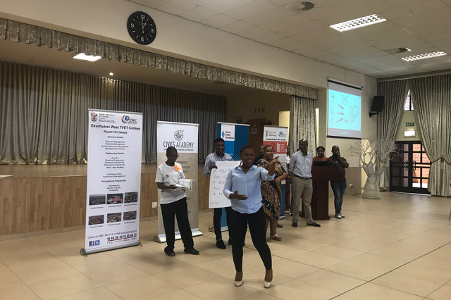
Interactive exercise during the training
HSF; HSF
The fact that the handbook was very well received during the launch and training shows the great need for new methods and modern media in teaching civic education. Hanns Bühler, representative of the HSS in Southern Africa: "Politically educated young people are the cornerstone of any democracy. Especially in young democracies like South Africa, educational materials which are adapted to national needs are of particular importance. Our project partners are setting a good example in this respect. A great success for German foundation work abroad!"
